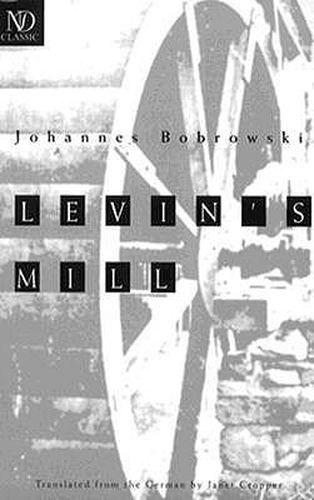Readings Newsletter
Become a Readings Member to make your shopping experience even easier.
Sign in or sign up for free!
You’re not far away from qualifying for FREE standard shipping within Australia
You’ve qualified for FREE standard shipping within Australia
The cart is loading…






From Publishers Weekly Originally published in 1964, this first novel is almost a quasi-social history: the author has taken a minor incident in his own family’s past–the time is 1874–and expanded it to dramatize the racial tension between the Germans and the native Poles of Western Prussia. Levin, a Jew, has the audacity to construct a mill downstream from the mill of a wealthy landowner, the narrator’s grandfather. The latter, fearing competition, opens the sluice gates so that Levin’s mill is destroyed. Levin takes the old man to court, but Grandfather cozies up to the German magistrates, suggesting that we Germans should stick together. The fight eventually exhausts Grandfather, mentally and physically. Bobrowski’s rhetorical, labored writing, and the obscurity of the plot, only hint at his intentions. What does come across is a portrait of a closed, provincial society and rampant ethnocentrism that would plague the Germans well into the 20th century. Copyright 1988 Reed Business Information, Inc.
$9.00 standard shipping within Australia
FREE standard shipping within Australia for orders over $100.00
Express & International shipping calculated at checkout
From Publishers Weekly Originally published in 1964, this first novel is almost a quasi-social history: the author has taken a minor incident in his own family’s past–the time is 1874–and expanded it to dramatize the racial tension between the Germans and the native Poles of Western Prussia. Levin, a Jew, has the audacity to construct a mill downstream from the mill of a wealthy landowner, the narrator’s grandfather. The latter, fearing competition, opens the sluice gates so that Levin’s mill is destroyed. Levin takes the old man to court, but Grandfather cozies up to the German magistrates, suggesting that we Germans should stick together. The fight eventually exhausts Grandfather, mentally and physically. Bobrowski’s rhetorical, labored writing, and the obscurity of the plot, only hint at his intentions. What does come across is a portrait of a closed, provincial society and rampant ethnocentrism that would plague the Germans well into the 20th century. Copyright 1988 Reed Business Information, Inc.